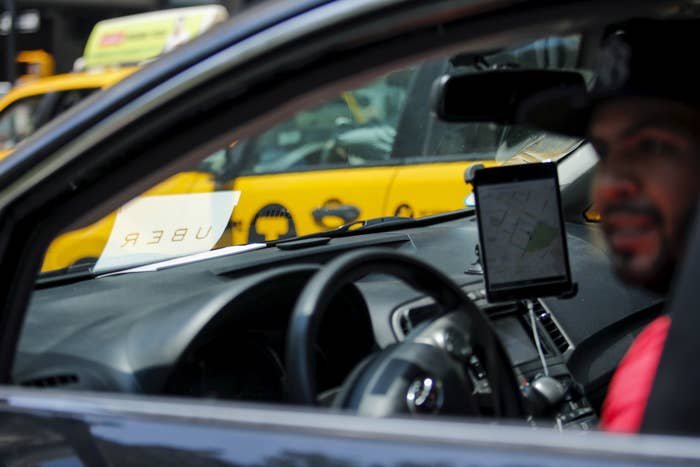
For months, Uber has been using smartphone sensors to monitor its Houston drivers’ movements in an effort to verify rider feedback. The pilot program, which has been underway since November, relies on the GPS, accelerometers, and gyrometers built into today’s smartphones to monitor a vehicle’s speed as well as how often it stops and starts.
Uber says the program is a means of verifying the accuracy of poor ratings and complaints. If smartphone data confirms a complaint about a driver who repeatedly stopped short, Uber sends that driver an email alert with supporting data. But if the data does not support a complaint, the poor rating associated with it can be stricken from a driver's record. The system is intended to provide drivers a form of recourse against unfair or heavy-handed complaints.
Uber's driver agreement notes that the company may collect geolocation and GPS data, but it says nothing about associated gyrometer and accelerometer data. The company told BuzzFeed News that drivers received no advance notice that their movement data would be used in this particular pilot and are only notified when they receive an email notifying them of a rider complaint and the associated data used to verify that information.
While the verification of rider complaints is the primary focus of this pilot program, there are other uses for the movement data Uber is gathering. Uber could follow in the footsteps of some automakers and use this information to inform the autonomous technology it's developing at R&D centers at Carnegie Mellon and the University of Arizona. General Motors is already in the beginning stages of gathering information about human instincts in specific driving conditions through its partnership with Mobileye. Using the vehicle's external cameras and its GPS data, GM is gathering and analyzing anonymized data about human behavior that could later inform the behavior of the autonomous technology it's developing.
In a driver agreement that was updated in December 2015, Uber reserves the right to collect personal data, which can then be "accessed by Company and its Affiliates, third parties, and service providers for business purposes, including for marketing, lead generation, service development and improvement, analytics, industry and market research, and such other purposes consistent with Company’s and its Affiliates' legitimate business needs." The language allows for a very broad range of uses for the location and movement data collected but an Uber spokesperson said "the data in this pilot is not being shared with third parties."
